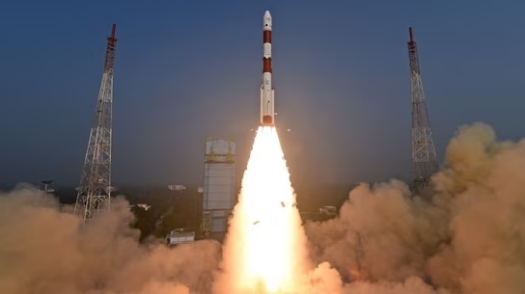Latest Updates
ISRO rings in New Year with the successful launch of India's first X-Ray Polarimeter Satellite, XPoSat

ISRO welcomed the New Year with the launch of India's first X-Ray Polarimeter Satellite, XPoSat on Monday. The satellite has been designed to provide insights into celestial objects like black holes; onboard a Polar Satellite Launch Vehicle rocket (PSLV-C58) was launched from the Satish Dhawan Space Centre in Sriharikota at around 9:10 am on January 1.
The XPoSat is the first dedicated scientific satellite from ISRO for conducting research in space-based polarization measurements of X-ray emissions from celestial sources. Notably, the US-based National Aeronautics and Space Administration (NASA) conducted a similar study with the Imaging X-Ray Polarimetry Explorer mission in December 2021, focusing on remnants of supernova explosions, particle streams from black holes, and other cosmic events.
The PSLV-C58 mission aims to measure the polarization of X-rays within the 8-30 keV energy range originating from approximately 50 potential cosmic sources. This involves conducting extensive spectral and temporal studies of cosmic X-ray sources. X-ray polarization is a critical diagnostic tool used to analyze celestial sources' radiation mechanism and geometry.
The primary payload of XPoSat is POLIX (Polarimeter Instrument in X-Rays), developed by the Raman Research Institute, and is responsible for measuring polarimetry parameters. XSPECT (X-ray Spectroscopy and Timing), constructed by the U R Rao Satellite Centre in Bengaluru, is part of the mission's instrumentation.
In 2023, India achieved significant milestones, including the successful gentle landing of Chandrayaan-3 on the Moon's South Pole and the launch of Aditya-L1, the nation's inaugural solar mission. India has set ambitious goals such as the Gaganyaan Mission, the establishment of the 'Bharatiya Antariksha Station' by 2035, and the mission to send the first Indian to the Moon by 2040.









